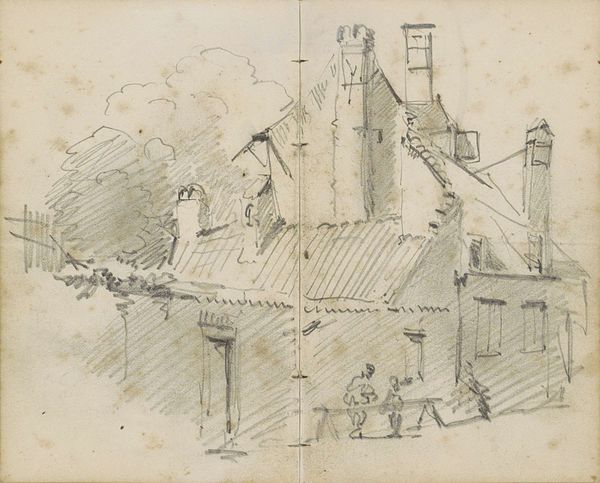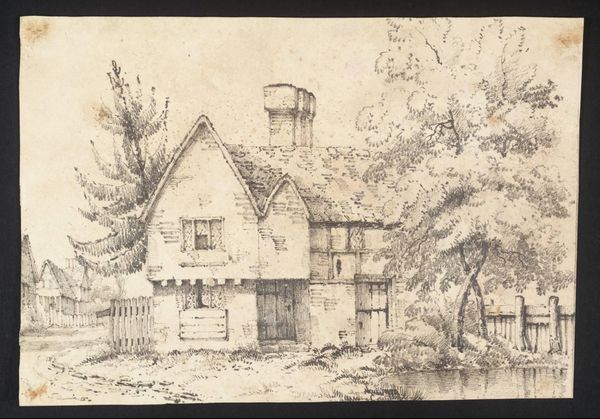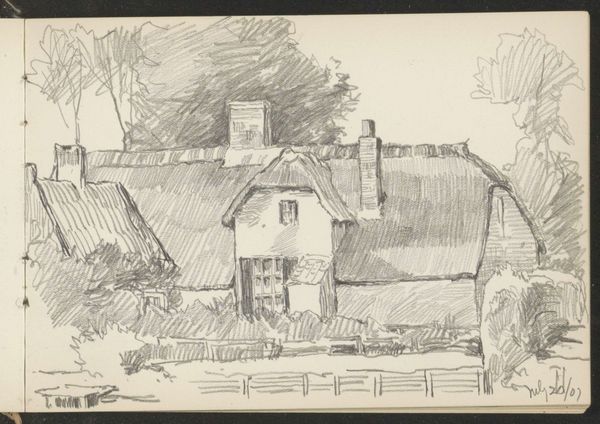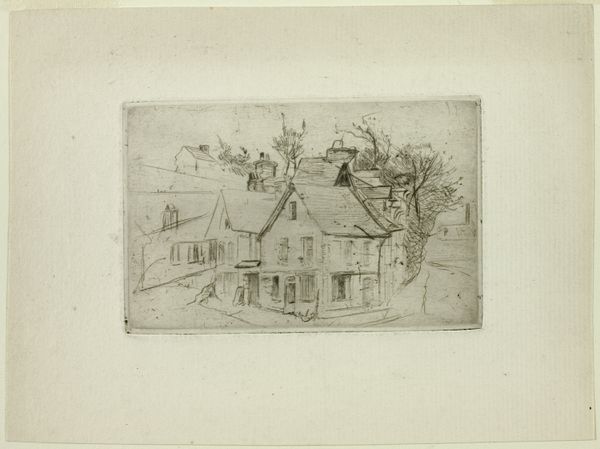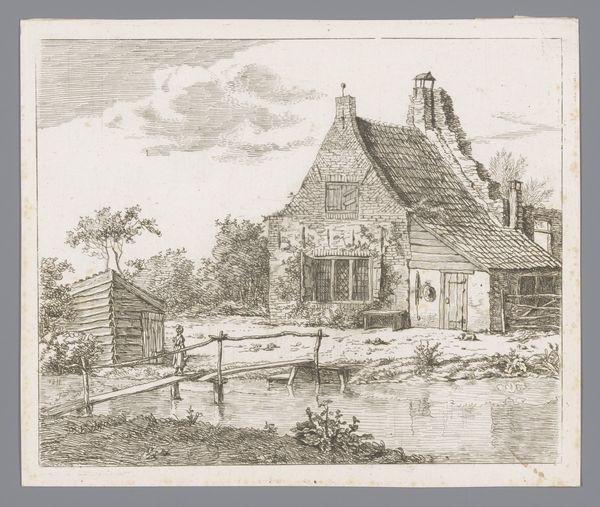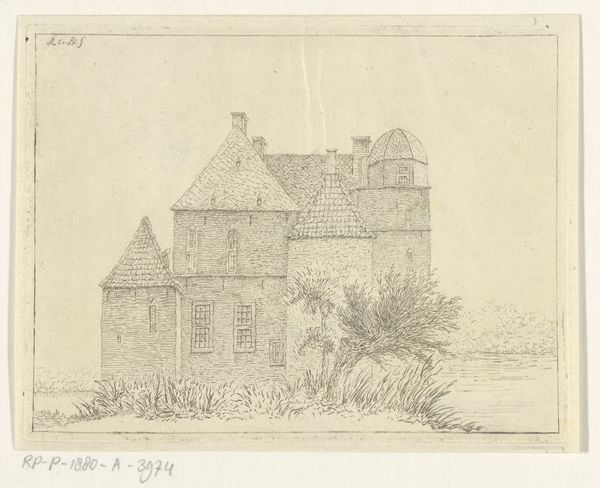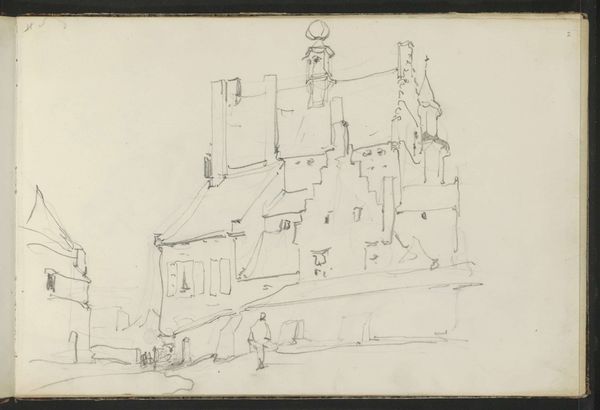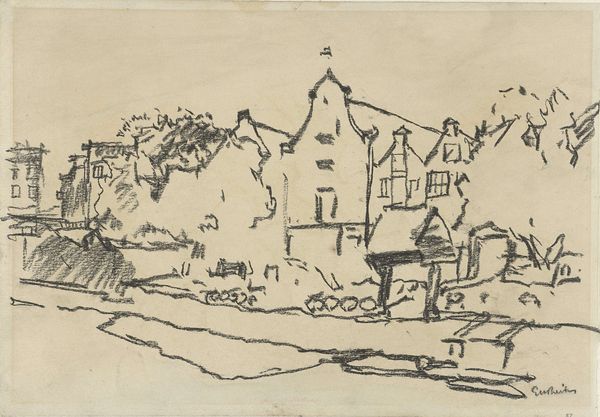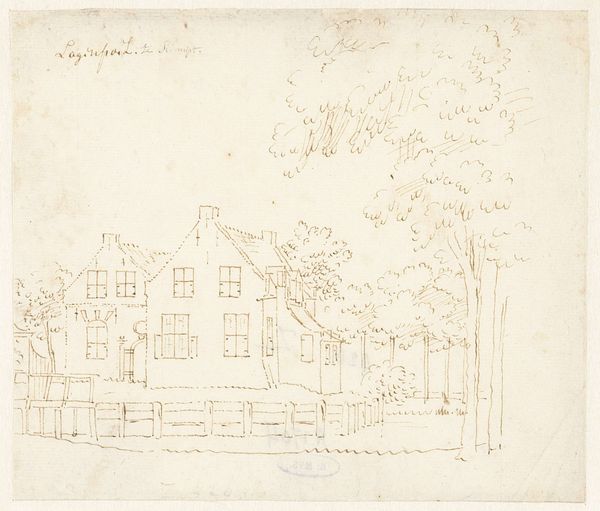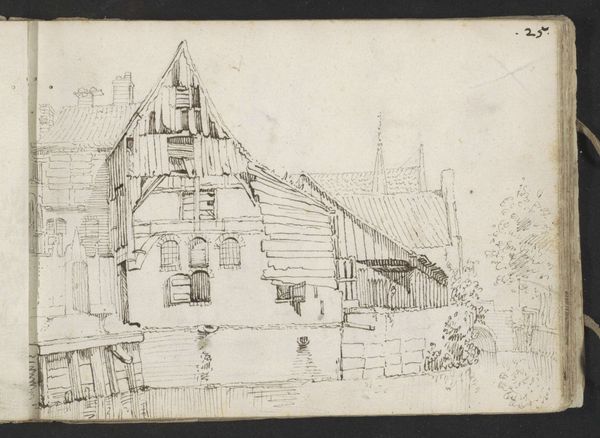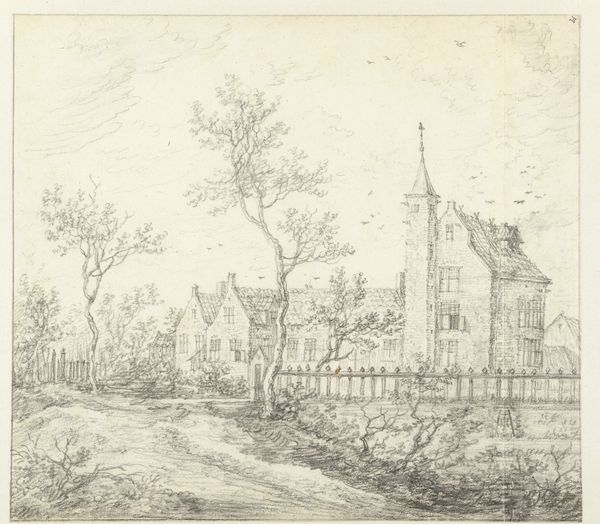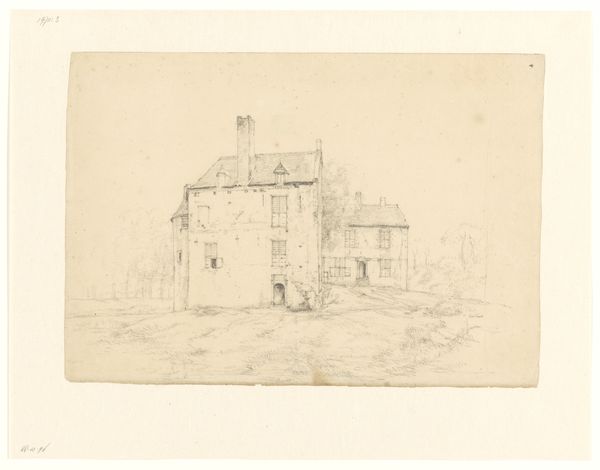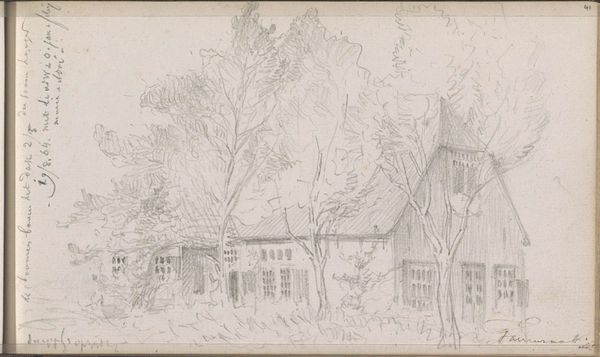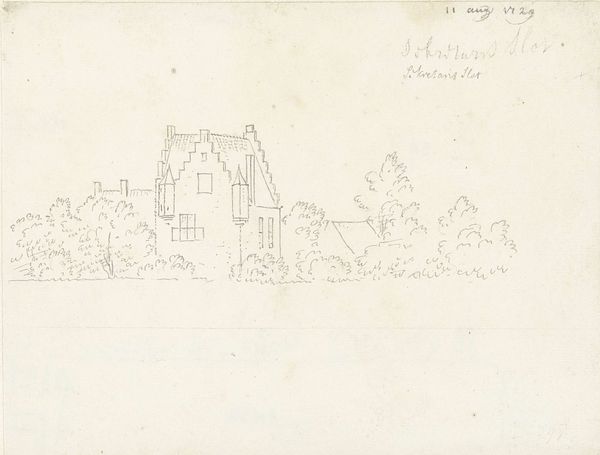
drawing, paper, pencil
#
architectural sketch
#
drawing
#
quirky sketch
#
dutch-golden-age
#
old engraving style
#
landscape
#
paper
#
personal sketchbook
#
sketchwork
#
pen-ink sketch
#
pencil
#
pen work
#
sketchbook drawing
#
cityscape
#
storyboard and sketchbook work
#
realism
#
initial sketch
Dimensions: height 137 mm, width 169 mm
Copyright: Rijks Museum: Open Domain
Curator: So, here we have Herman Antonius van Daalhoff's drawing, "Huis te Warmond," created sometime between 1877 and 1948. It appears to be a pen and pencil sketch on paper. Editor: Immediately, I get this wistful, almost melancholic feeling. It's a quiet scene, rendered in such delicate lines. It feels like peering into a memory. Curator: Indeed. Van Daalhoff was working within a time of considerable shifts in Dutch society and architectural styles. These detailed sketches offered a connection to older building practices. The picturesque qualities became more appreciated amidst urban developments. Editor: Right, it feels so personal. I love how he’s captured the textures – the thatched roof, the rough stonework. It's loose, yet conveys so much information. And there is something comforting about the familiar composition. Like a child's drawing. The Dutch Golden Age and the charm it offered... I wonder if he felt a pang of nostalgia documenting what could have seemed like the fading past. Curator: The choice to depict such vernacular architecture is quite significant. This was an era grappling with ideas of national identity and heritage preservation. Picturesque sketches like this contributed to romanticized views of the Dutch countryside. This piece of Realism becomes charged by the weight of history in preservation. Editor: I see the hint of that, but the image feels more immediate, more emotional. It feels to me like capturing the soul of a place. Almost as though I could hear birds. And it feels significant, it makes me think. What details of modern day places or spaces could I draw from memory alone to describe them in a succinct manner? What features would need to make the cut? Curator: It certainly has a quiet appeal. These images played an interesting role in defining public perceptions of Dutch heritage, feeding into a broader cultural discourse of national identity. Editor: I can definitely appreciate that layered significance, given your analysis. Still, I love the intimacy of the drawing. Makes you appreciate small moments and quiet, charming scenes. Curator: A lovely encapsulation of why it continues to resonate today. Thanks for that! Editor: Thanks for offering a crucial historical frame. I am grateful for the time, this was wonderful.
Comments
No comments
Be the first to comment and join the conversation on the ultimate creative platform.
